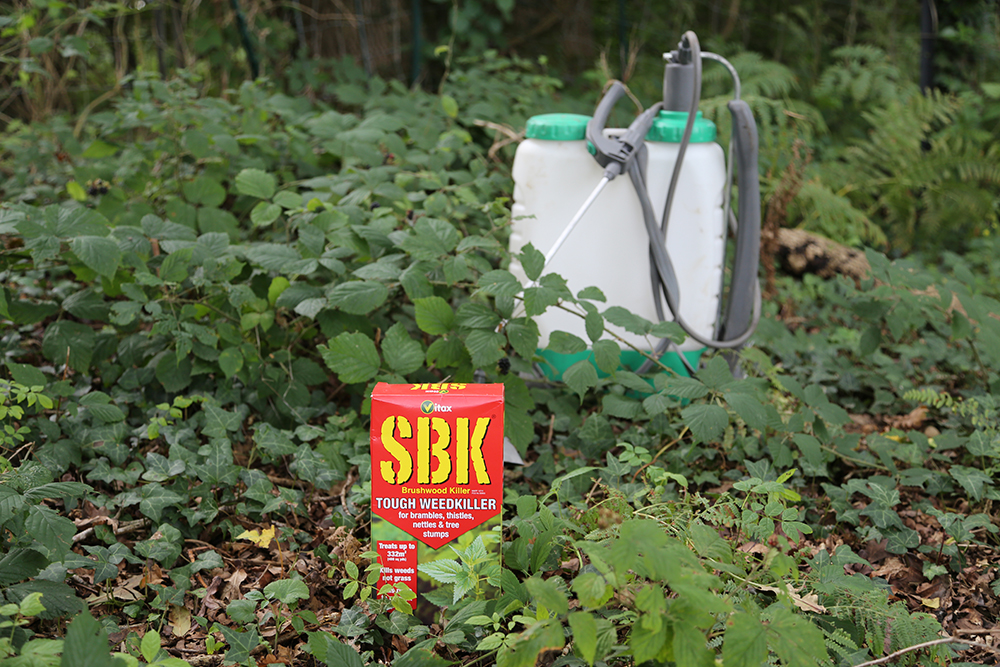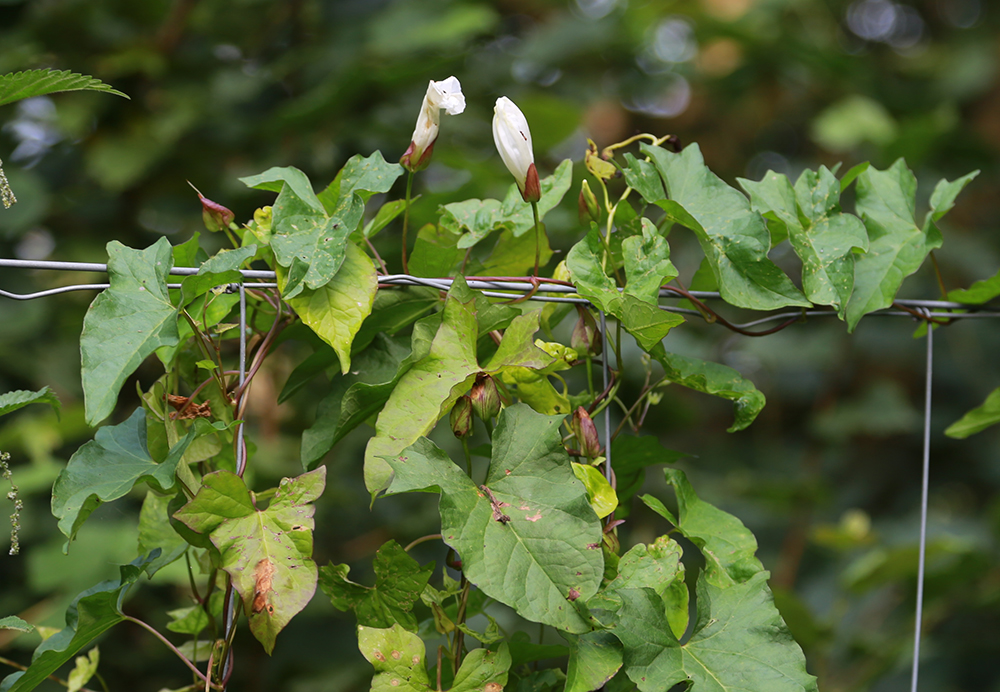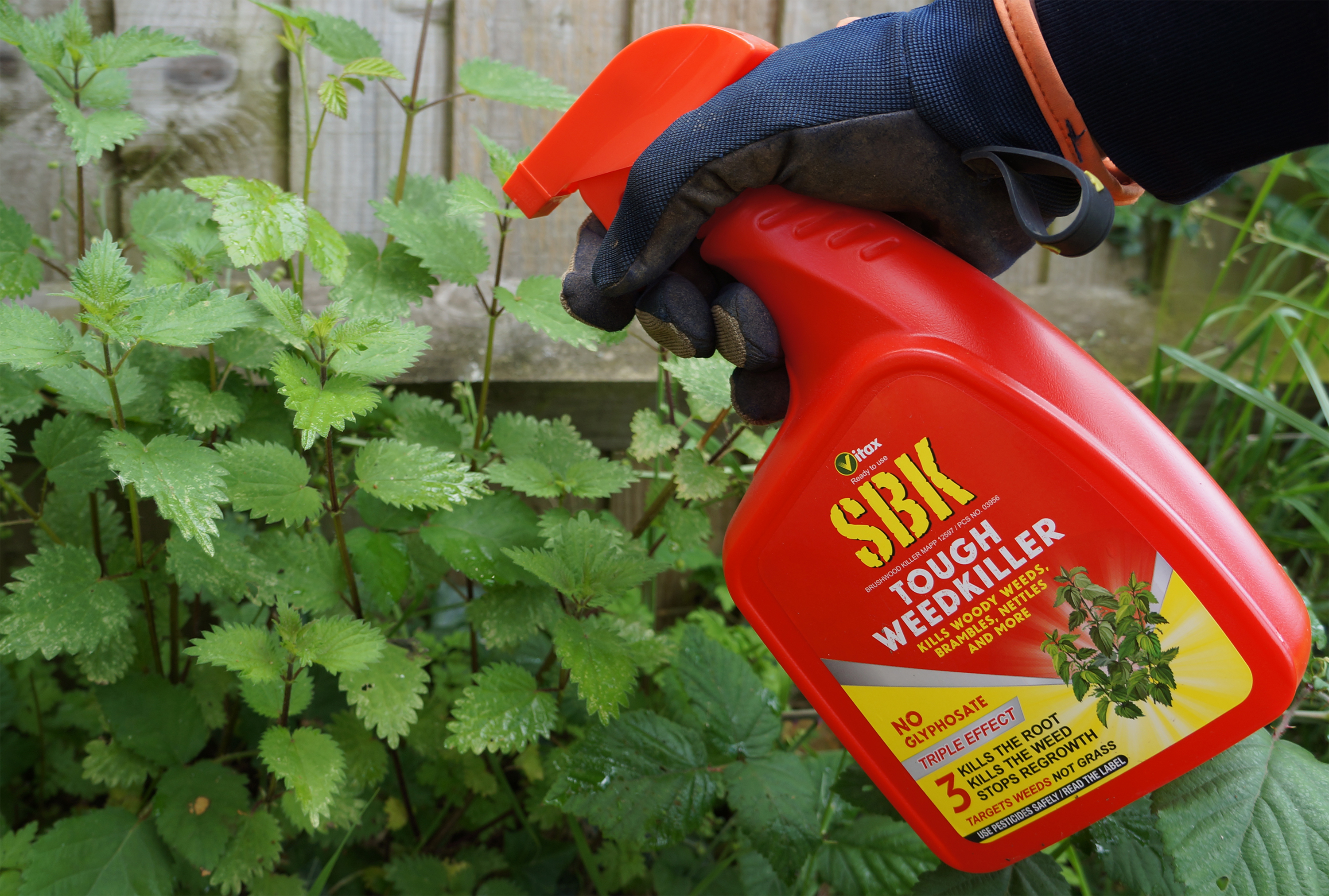Dealing with tough weeds
During the course of the year tough weeds take advantage. Going un-noticed in the border they thrive, growing stronger and spreading through your precious plants in an attempt to overthrow them. We all have our main enemies among their ranks: nettles, brambles, ivy, ground elder, bindweed, to name but a few of the worst offenders. Late summer and autumn may seem rather later in the season to take action, but actually the time is just right. Tough weeds like these are actively growing, some, especially bindweed is flowering and there is plenty of foliage to absorb a weedkiller: the secret is using the correct one that will do the job.
 The right approach
The right approach
Systemic weedkillers, like Vitax SBK Tough Weedkiller (contains Triclopyr) works by moving from the leaves, down through the plant to kill the roots. Quite simply the more foliage there is to absorb the chemical, the more there is to get into the plant and so more of the roots will be killer. A common mistake is to pull up, or strim the weeds before applying the weedkiller. This means it is less effective, if it works at all.
SBK tough weedkiller is specially formulated not to harm grass, so you can use it close to the lawn. However it will kill any of your precious garden plants that it comes into direct contact with, therefore care is needed when applying it. It is very effective when used on tree seedlings and saplings, such as ash and sycamore which are a problem in many gardens. It can also be used as a tree stump killer at any time of the year, even during the winter months.
 The active ingredient in SBK, Triclopyr, offers an excellent alternative to glyphosate which has been so widely used in recent years. SBK does not have a long-term adverse effect on soil, you can replant safely after only six weeks.
The active ingredient in SBK, Triclopyr, offers an excellent alternative to glyphosate which has been so widely used in recent years. SBK does not have a long-term adverse effect on soil, you can replant safely after only six weeks.
Application
The secret of success with any garden chemical is to follow the manufacturer’s application instructions. Vitax SBK is diluted in water and applied using a watering can or a sprayer. In either case a dedicated piece of equipment, used only for weedkillers is recommended.
Choose a still day when the foliage is reasonably dry. Apply carefully only to the foliage of weeds or plants you wish to kill. Use a coarse spray if applying with a sprayer: it does not drift and shield or tie back any plants that need protection. Apply only to lightly wet the leaf surfaces to the point of run-off; applying larger quantities and drenching the weeds will not be more successful.
If you do not like the idea of mixing, SBK is available in a ready-to-use spray.
Tip: Horsetail (equisetum) is difficult to wet because the surface of stems and leaves is so waxy. Either walk through it or lightly bruise with a plastic rake before applying to help the chemical stick.
Be patient
Systemic weedkillers do not work overnight, depending on light levels and temperature they may not show much signs of action for a week or two. If weed growth is particularly heavy there may be re-growth next season. If this happens, do not be despondent, just wait until the weeds are in growth and re-apply.
If you have a border infested with perennial weed, such as bindweed or ground elder, be prepared to be ruthless. You may need to sacrifice both weeds and plants to eradicate weeds completely and you may need to leave the border empty for a season while you treat any stubborn remaining weeds.
The same thing applies when planting a new bed if perennial weeds are present: get rid of them before you plant, even if it means waiting and leaving the bed empty while you spray and eradicate the problem.
Tips on avoiding the introduction of weeds
It is surprisingly easy to make matters worse by spreading weeds in your garden and introducing them from outside.
Beware of manure from a farmyard, or your own garden compost. Never put perennial weeds or annual weeds that are seeding on your compost heap. Also the outside of a manure or compost heap is often covered in weed seeds just waiting to sprout.
If planting newly acquired plants in your garden, check to see if the compost surface is weed free. If there are emerging seedlings, or traces of perennial weed eradicate these before you plant it.
Note:
None of these are lawn weedkillers and they should not be used on lawns.
Use plant protection products safely: Always read the label and product information before use.
Andy McIndoe for Vitax Gardenworld
Your login details have been used by another user or machine. Login details can only be used once at any one time so you have therefore automatically been logged out. Please contact your sites administrator if you believe this other user or machine has unauthorised access.












